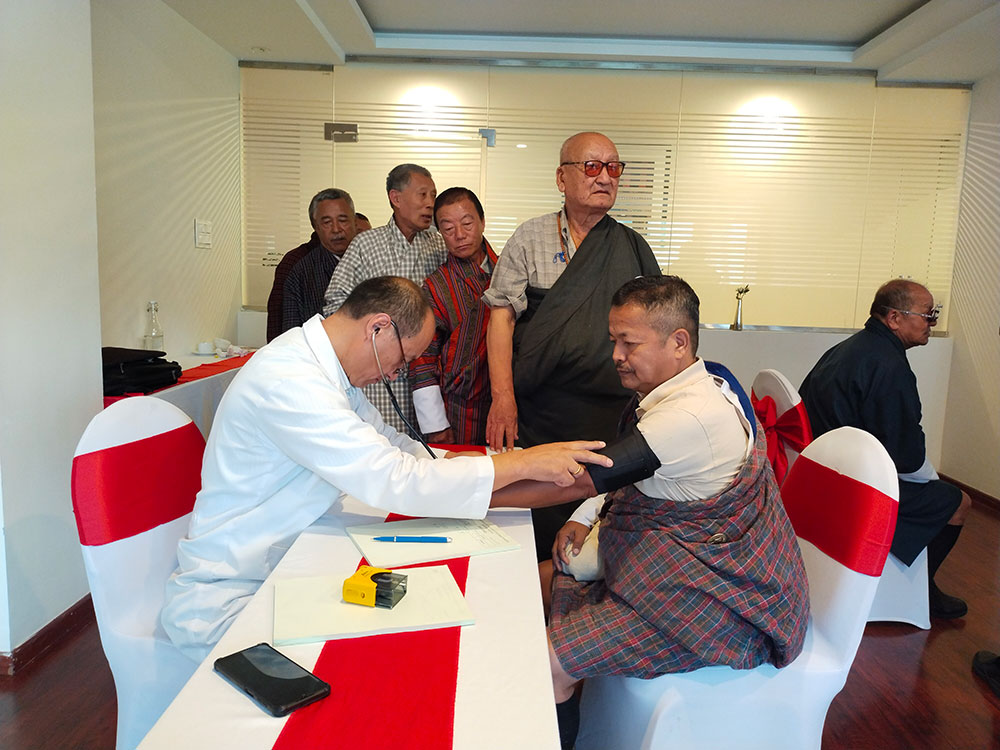YK Poudel
The absence of a centre, funds, and a proper policy to take care of their needs are some of the challenges senior citizens face today.
As an agency to support senior citizens, the Royal Society for Senior Citizens (RSSC) coordinated the 10th annual general meeting—discussion on challenges and the way forward yesterday, in commemorating the International Day for Older Persons.
As a priority, the RSSC has been advocating a national policy and legislation to address the issues faced by elderly persons.
According to an official from RSSC, the society was promised community centres for senior citizens across the country by the previous government. Yet, nothing happened.
National Assembly Speaker, Wangchuk Namgyel, the chief guest of the event, said that with a population ratio of 6.7 percent senior citizens, a legal framework that guides into better old age is timely. “Are we doing enough to support the senior citizens? The government must work on improving the policy of healthy ageing.”
“The number of senior citizens in the country is increasing, a policy that supports the elderly citizens is a must. We must have a policy that supports productive ageing, healthcare and protection, safety and security, housing and age-friendly services, and welfare for our senior citizens,” he said.
The RSSC, although a registered CSO, does not have a proper senior citizen centre that acts as an office for the members from various dzongkhags.
The Asian Development Bank has approved assistance of Ngultrum 80 million for the development of a senior citizen centre for RSSC members. Yet, the government delaying the policy has been a challenge. Adding to the problem is the lack of a plot that can be used for the construction of a centre in Thimphu.
The society has proposed installation of elevators for buildings with four storeys or higher, public buses to designate priority seats for the elderly and the disabled, provision for non-contributory pension scheme for poor elderly citizens aged 60 years and older, and introduction of a voluntary contribution pension scheme so that even national workforce workers can provide for old age pension. Other recommendations were supporting the establishment of senior citizen centres in urban areas where they can gather and access services, and the establishment of a seed fund through a one-time grant.
One of the members of the society said that several promises and programmes have been initiated with the hope that a pathway can be formed. However, the support at the national level has remained minimal.
“For example, the government promised that policy for senior citizen’s welfare will be launched in October last year—that remained unfulfilled,” the RSSC member said.
The country has also started senior citizens cards that will act as priority cards for the senior citizens. Nonetheless, the card has remained of no use even after a year of its issue. “The motive of the card was to help the senior citizens in getting a discount on airfare, not having to stay in a queue at the banks and public service centres, and get priority in availing government services.”
The members acknowledged the priority seats in public transport and a separate line during elections.
Another member said that in January this year, the Health Minister said that the Senior Citizen Policy is almost ready and waiting to be submitted to the Cabinet for approval. “However, no update on the policy implementation has been passed to date.”
According to the 2022 Bhutan Living Standard Survey report, more than 51,000 of the total population are elders.
The proportion of the elderly population, those who are 65 years and above, increased from 4.7 percent (29,745) to 5.9 percent (43,064) between 2005 and 2017. Population and Housing Census of Bhutan projection in 2022 shows that the elderly population in Bhutan has 50,715 older people which is 6.7 percent of the population—which is expected to increase to 13.4 percent (118,650) by 2047 making the country an “aged” society.
Established in 2011 upon Royal command, RSSC is registered as Public Benefit Organisation with the Civil Society Organisation Authority and has around 200 members today.
October for senior citizens
October will be observed as the month of senior citizens. Annual health check-up for senior citizens was launched yesterday and around 40 senior citizens were screened.
Health facilities in the country will provide health screenings, including screening for various non-communicable diseases and assessment of mental health conditions.
This year’s theme is fulfilling the promises of the Universal Declaration of Human Rights for older person: across generations.
According to the National Statistics Bureau report, 63 percent of old people face financial problem, 36 percent suffer from poor shelter, and 26 percent suffer from food self-sufficiency among other problems.


